In the current era of skyrocketing energy costs and increasing environmental concerns, the role of insulation in maintaining an eco-friendly home is significantly indispensable. Insulation, a relatively unseen yet crucial component, is instrumental in encouraging energy efficiency, promoting comfort, and reducing carbon footprint.
Understanding Insulation
Insulation is used in homes primarily to prevent heat loss or gain by providing resistance to heat movement. In simpler terms, it acts as a barrier to the flow of heat. Proper insulation reduces the amount of heat entering during summer and decreases the amount escaping during winter, resulting in a significant reduction in energy consumption.
The Role of Insulation in an Eco-friendly Home
1. Energy Efficiency: The most outstanding advantage of insulation is its ability to improve a home’s energy efficiency. By preventing excessive heat flow, insulation reduces the need for devices like heaters and air conditioners, thereby conserving energy. According to the United States Department of Energy, a properly insulated home can reduce the energy used for heating and cooling purposes by approximately 20% to 30%. Therefore, by investing in quality insulation, homeowners can substantially decrease their reliance on energy-consuming devices.
2. Reduction of Carbon Footprint: Insulation plays an instrumental role in lowering the greenhouse gas emissions that predominantly contribute to climate change. High-energy consumption translates into an increased carbon footprint due to the burning of fossil fuels for power generation. A well-insulated home, which consumes less energy, will consequently emit less carbon dioxide into the environment, making for a cleaner, more sustainable habitat.
3. Financial Savings: While the initial investment may seem high, insulation pays for itself in the long term. Energy-efficient homes have lower utility bills due to reduced energy consumption. Moreover, energy-efficient homes often have higher property values which could be beneficial in case of a sale.
4. Comfort and Health: A well-insulated home provides uniform temperature across different rooms, enhancing comfort in living spaces. Additionally, insulation prevents the growth of mold and buffers exterior noise, enhancing overall living conditions.
Choosing the Right Insulation
The efficiency of insulation depends on the materials used and its location in the structure of a home. Some common types include rolled and batt insulation (typically made of fiberglass, cellulose, mineral wool), blown-in, foam board, reflective system, etc. The right choice can depend on the home’s geographic location, climate, and the house’s specific area to insulate.
While the role of insulation in creating an eco-friendly home is clear, its installation should comply with local building codes and be carried out by licensed contractors to maximize its benefits. Furthermore, regular inspection is crucial for identifying any damage or inefficiency that could diminish its effectiveness.
With global warming and energy conservation continuing to gain global attention, taking steps to create an eco-friendly home is more important than ever. Effective insulation stands as an easy but powerful step homeowners can take to reduce their environmental impact while gaining comfort and financial benefits concurrently.
By initiating this green practice, we not only adopt responsible consumption and sustainable practices at an individual level but also contribute to global efforts in mitigating climate change and housing sustainability. The role of insulation in maintaining an eco-friendly home is thus certainly transformative and clearly indicates that humanity can coexist harmoniously with nature.

